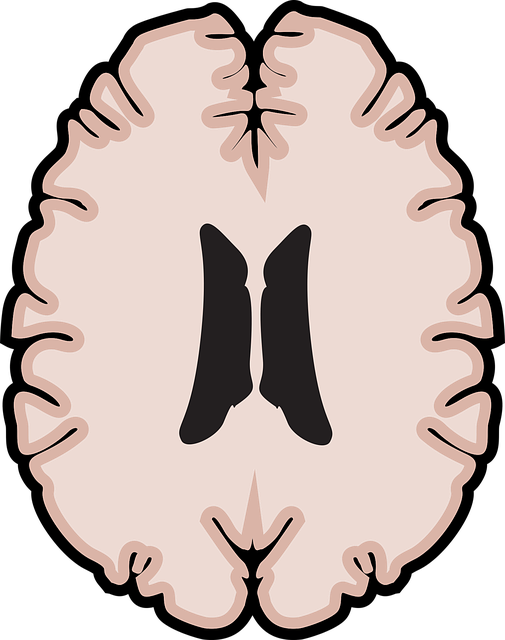Northglenn Anxiety Therapy offers a holistic approach to addressing substance abuse by targeting underlying issues such as trauma, using evidence-based methods like CBT, and promoting positive lifestyle changes. They provide specialized services, including safe spaces for processing experiences, accessible resources tailored to diverse needs, conflict resolution techniques, workshops on mental health awareness, and culturally sensitive care. By fostering recovery and long-term resilience, Northglenn Anxiety Therapy aims to empower individuals to avoid or manage triggers, build strong support systems, and utilize community resources to prevent and overcome substance abuse.
In the realm of mental health, substance abuse poses significant risks. This article explores comprehensive risk reduction strategies for substance abuse, tailored for individuals seeking support in Northglenn Anxiety Therapy. We delve into understanding the complexities of substance abuse and its triggers, identifying underlying causes, and presenting effective therapy approaches. Additionally, we discuss lifestyle changes, coping strategies, and the critical role of support systems and community resources available in Northglenn.
- Understanding Substance Abuse and Its Risks
- Identifying Triggers and Underlying Causes
- Therapy Approaches for Risk Reduction
- Lifestyle Changes and Coping Strategies
- Support Systems and Community Resources in Northglenn Anxiety Therapy
Understanding Substance Abuse and Its Risks

Substance abuse is a complex issue that requires a multifaceted approach to understanding and addressing its root causes. It involves the excessive or uncontrolled use of drugs or alcohol, leading to negative consequences for individuals and their communities. The risks associated with substance abuse are far-reaching, impacting not only physical health but also mental well-being, relationships, and overall quality of life. Northglenn Anxiety Therapy, a specialized service, recognizes that addressing these challenges often involves tackling underlying issues such as trauma, which can significantly contribute to substance misuse.
Trauma Support Services play a crucial role in risk reduction strategies by providing safe spaces for individuals to process their experiences and develop healthy coping mechanisms. Mental Health Policy Analysis and Advocacy is essential in ensuring that resources and services are accessible and tailored to meet the diverse needs of those affected by substance abuse, especially marginalized communities. Additionally, Conflict Resolution Techniques can help individuals navigate challenging relationships and social dynamics, which often contribute to or result from substance abuse. By combining these approaches, Northglenn Anxiety Therapy aims to offer comprehensive support, fostering recovery and long-term resilience among clients.
Identifying Triggers and Underlying Causes

Identifying triggers and underlying causes is a crucial step in developing effective strategies to reduce substance abuse risks. For many individuals struggling with addiction, specific triggers can set off a cycle of harmful behaviors. These might include certain environments, people, or emotional states that lead to substance use as a coping mechanism. Northglenn Anxiety Therapy emphasizes the importance of understanding these personal triggers and addressing them through tailored interventions. By recognizing patterns, one can avoid or manage potential triggers, preventing relapse.
Mental Health Awareness plays a significant role in this process. Often, underlying causes such as anxiety, depression, or trauma contribute to substance abuse. A comprehensive approach that incorporates Stress Management Workshops organized by local mental health advocates can empower individuals with tools to navigate these challenges. Additionally, Cultural Sensitivity in Mental Healthcare Practice ensures that interventions are accessible and relevant to diverse populations, acknowledging that personalized care is essential for successful risk reduction.
Therapy Approaches for Risk Reduction

In the context of substance abuse risk reduction, therapy plays a pivotal role in addressing underlying issues that contribute to unhealthy behaviors. Northglenn Anxiety Therapy, for instance, has proven effective in managing anxiety, a common co-occurring disorder with substance abuse. By employing evidence-based approaches such as Cognitive Behavioral Therapy (CBT), therapists help individuals identify and challenge negative thought patterns and behaviors associated with substance misuse. CBT also equips clients with coping strategies to handle triggers and stress without resorting to substances.
Incorporating positive thinking, self-care practices, and crisis intervention guidance into therapy sessions further enhances risk reduction efforts. Therapists teach clients mindfulness techniques to foster present-moment awareness and promote positive thinking. Self-care practices, such as regular exercise, adequate sleep, and healthy eating habits, are encouraged to stabilize mood and reduce cravings. Crisis intervention strategies equip individuals with immediate coping tools during high-risk situations, enabling them to make more rational decisions without turning to substance abuse.
Lifestyle Changes and Coping Strategies

Making lifestyle changes is a powerful tool in the fight against substance abuse. Individuals in Northglenn seeking to reduce risks associated with addiction should consider adopting healthier habits and routines. This can include regular exercise, which not only improves physical health but also acts as a natural stress reliever and mood booster. Additionally, maintaining a balanced diet ensures the body receives essential nutrients, enhancing overall well-being and energy levels. Adequate sleep is another cornerstone; it allows for better decision-making and emotional regulation, reducing triggers for substance misuse.
Coping strategies are equally vital. Learning effective techniques to manage stress, anxiety, or difficult emotions without resorting to substances is crucial. Mental Wellness Coaching Programs Development can offer tailored guidance on mindfulness practices, relaxation exercises, and cognitive-behavioral therapy (CBT) techniques. Building resilience through these programs equips individuals with the skills to navigate challenges and prevent relapse. Moreover, Risk Management Planning for Mental Health Professionals plays a significant role in supporting those in recovery by providing strategies to manage risk factors and promote long-term mental health stability.
Support Systems and Community Resources in Northglenn Anxiety Therapy

In Northglenn Anxiety Therapy, building robust support systems and leveraging community resources play a pivotal role in mitigating risks associated with substance abuse. Therapists often emphasize the importance of social connections as a protective factor against relapse. Support groups, for instance, provide a safe space where individuals can share their experiences, gain insights from peers, and foster a sense of belonging. These communities offer continuous encouragement and accountability, essential components in sustaining recovery.
Community resources extend beyond support groups, encompassing mental wellness coaching programs that focus on developing self-awareness exercises and inner strength. Such initiatives empower individuals to confront anxiety and stress without resorting to substance abuse. By integrating these strategies into their lives, Northglenn residents can enhance their mental wellness and build resilience against triggers that may lead to substance misuse.
Substance abuse is a complex issue, but with comprehensive strategies like those discussed—from understanding and identifying triggers to adopting lifestyle changes and leveraging support systems like Northglenn Anxiety Therapy—individuals can effectively reduce risks and embark on a path to recovery. By combining therapy approaches, coping strategies, and community resources, those struggling with substance abuse can find the help they need to navigate this challenging landscape and foster a healthier, more balanced future.














